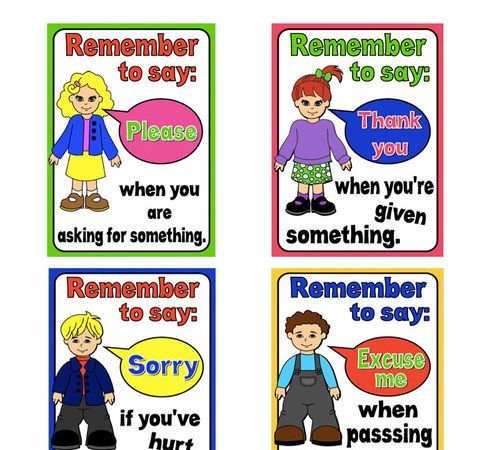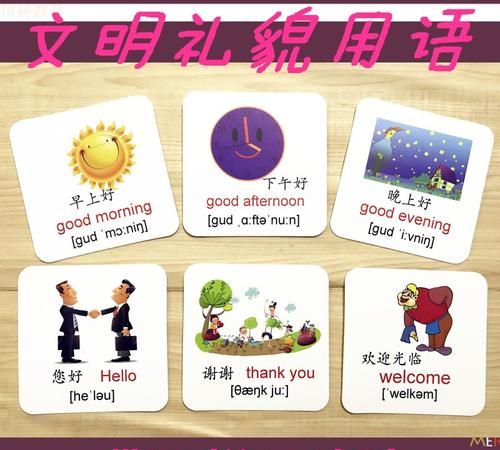本文目录
勿折花草、来宾登记、请勿践踏草坪、请随手关门、勿乱扔废弃物用英语怎么说
Do not discount flowers
Registered guests
Do not trample on the lawn
Please pick close
Do not throw waste

关于公共场合的文明礼仪英语作文
eing Polite
文明礼貌
Good manners are very important in the communication of daily life.Everyone likes a person with good manners.But what are good manners?
在日常生活中有礼貌是很重要的.每个人都喜欢有礼貌的人.但是什么才是有礼貌呢?
How does one know what should do and what should not do when trying to be a good - mannered person?
想成为一个有礼貌的人如何知道什么应该做,什么不应该做?
Well,here are some common examples.A person with good manners never laughs at a people in trouble.Instead,he (she) always tries to consult or offer help to the person.
好,这有一些常见的例子.一个有礼貌的人永远不会嘲笑处于困境中的人.相反,他(她)总是试图咨询情况或提供帮助.
When he (she) takes a bus and sees an old man or a sick man,he (she) always gives his (her) seat to him.He doesn't interrupt other people when they are talking.
当他(她)在公共汽车上看见老人或病人,他(她)总是会给他让座.他不会打断别人的谈话.
He uses a handkerchief when he sneezes or coughs.
在打喷嚏或咳嗽时他会用手帕.
He does not spite in public places.Ideas of what are good manners are not always the same in different regions.For example,people in Western countries usually kiss each other to show their greetings,whereas in China,kissing in public is something of unusual and sometimes be regarded as impolite to somebody else.
他不会在公共场合吐痰.对于什么才是有礼貌,不同的地方是不一样的.例如,人们在西方国家通常互相亲吻来表示问候,而在中国,在公众场合接吻是不寻常的事情,有时会被视为是对别人的不礼貌.
So it is important to know what is regarded as polite and impolite before you go to a region.
所以在去一个地方之前知道什么是礼貌什么是不礼貌是很重要的.
But remember that it is always right to be kind and helpful to others.
但请记住,友好和乐于助人永远都是对的.

英语文明礼貌用语手抄报
语言是人类传递信息和表情达意的工具。为了在听话者和说话者之间建立起一座更
顺畅的交流的桥梁,为了建立良好的个人形象,为了避免交流中尴尬或冲突的出现,人们要
使用礼貌用语。英语中一些常见的单词,如:thanks,hello,hi,sorry等,均属于最简单
的礼貌用语。交谈时对方因感冒而打喷嚏,对方会说:"Excuse me",而你会说:"God bles
s you!"。来到商店,售货员会礼貌地问一句:"Can I help you, please?"。这些都是语言
礼貌原则的体现。
人们表达礼貌的方式多种多样,比如:1. I thought you were needing me, Mr.
Singer.(用过去时表示礼貌); 2. May I come in, please?(用情态动词表示礼貌);
3. Every piece of luggage has to be examined through.(用被动式表示礼貌);等等。
本文主要谈的内容是关于英语中选择合适的语言来表达礼貌的问题。
如果谈论一个坐轮椅的人(在汉语中我们说残疾人,而不是残废人),我们最好说a
challenged person,而不是a disabled person。形容老年人最好用senior people, 不要
用old people。也就是说,在英语使用过程中,应该尽量避免暗含性别、种族、身体、年龄
等偏见或歧视的语言。如:
例句一:Ms. Edward is a very large woman and moves around with difficulty but sh
e sparkles with intelligence and wit.。 在当代,如果人们因为种族或宗教原因对别人
表示不敬,就会被看作是“政治上的错误(politically incorrect)”,但是对体态丰满者
的不敬和偏见却并不是这样。上句话中的but一词暗示了说话者的偏见,即:肥胖者通常是笨
拙和愚蠢的。这明显是一种对他人的冒犯,所以这句话可以改为:Ms. Edward, a very lar
ge woman who moves around with difficulty, sparkles with intelligence and wit.。
例句二:Her study looks at some of the special challenges faced by deaf people w
ho are married to normal partners.。使用normal作为与残疾人相对的词来形容健全的人
,实际上暗示身有残疾的人abnormal。我们虽然可以说normal/abnormal hearing, vision
,body movement,etc.,但是normal和abnormal形容人则不甚合适。 这句话可以改为:He
r study looks at some of the special challenges faced by deaf people who are mar
ried to hearing partners.。
例句三:The islanders are a friendly and cheerful people, with a natural gift f
or music and dance that their Western visitors may well envy.。。每一个民族和文化
都倾向于给别的文化定型(如:parsimonious Dutch,hot-blooded Italians,dour Swiss
,conservative Canadians,等等),就算不考虑其中的偏见成分,这种定型没有看到构成
整体的每个个体的特点。friendly and cheerful 实际上走向了种族主义的对立极端---过
分的讨好。natural gift则太强调先天因素,暗含对后天努力的否定,对个体具体表现的忽
视。可以改为:Visitors to the island are made to feel welcome, and are urged to
take in some of the many music and dance performances that are a strong part of
the local culture.。
例句四:The rowdiest of the patrons were hauled off in the paddy wagon, and the
rest soon dispersed.。现在我们肯定不会说“That's awfully white of you”或者“Don
't try to jew me down”之类的暗含种族主义的言论,但是我们很少有人知道paddy在这里
暗含对爱尔兰人的贬义。这类的例子还有:gyp(to swindle or cheat, from gypsy),I
ndian giver(to give only to take back),还有welsh或welch(break a promise or r
efuse to pay a debt)。英国人把梅毒叫作the French pox,而法国人则称之为the Engli
sh pox。这句话可以改为:The rowdiest of the patrons were hauled off in the polic
e van, and the rest soon dispersed.。
还有一类礼貌涉及性别问题,这也是本文将要特别谈到的问题。英语语言趋向于把
男性作为标准:绝大部分词根是男性(阳性),而女性(阴性)则需要加词缀具体说明。对
于力图避免这类歧视的人来说,英语中最具挑战性的部分是人称代词。从传统语法角度来讲
,使用he或him来指代未明性别者是可以的,但是现在越来越多的人把这看作是性别歧视。可
是英语中本来是没有一个代词专指代男性和女性集合中的任何一个的(有人发明了“shim”
,不过似乎没有得到大众的认可),所以为了避免性别歧视,人们只好写作he/she,s/he或
把they用作一个单数代词。he/she或s/he写起来或听起来很不顺,而they作单数又不符合语
法,人们这么写或这么说只是为了显示自己不会使用阳性代词来指代所有的人(包括女性)
。当然在口语中,象"Someone left this fan letter for you, but they didn't sign it
"这样的句子听起来是很自然的,也不会产生歧义,但是在书面语中语法规则要严格得多,所
以they一般只指第三人称复数。如下面一句话就很不合适,并容易产生歧义:
Response to the new version of the program has been favorable; one custome
r, for example, said that they doubled their productivity within the first three
weeks.。
另外,不定代词each,every,anybody等本身是单数,所以按语法规定不能于they结
合,所以下面两句话都是语法错误的:
Each student must hand in their own lab report.
Every guest was given a name tag when they arrived.
同时,我们也可以用he or she(him or her;his or hers),不过要注意一点:尽
量避免在一句话中重复使用he or she,否则就会显得很邋遢。
当谈话涉及到的对象不止是一个人时,用复数人称代词指代就显得更加简洁准确。比
如:
We asked each participant to speak openly about his feelings.
We asked all participants to speak openly about their feelings.(更好)
某些情况下,我们还可以用one来代替he(one有时也可以用来代替第一、二人称)。
使用one时,通常说话者和听话者属于相同的集团,或者有着相同的特点,共同的利益。因此
,从某种意义上说,one传达了“you or I”的意思。比如:As a writer, one could work
it into a book addressing other writers.( Is one making oneself clear?)。再比如
在一篇以phisicians为对象的文章中,与其说:Clinical judgment involves the phisici
an making use of his experience, as well as his knowledge of the particular pati
ent.,不如说:Clinical judgment involves making use of one's experience, as well
as one's knowledge of the particular patient。不过要注意一点:one也不可以过度使
用,否则显得“stuffy”。
在某些可以和读者进行直接交流的文体中,比如在手册、说明书中,我们可以使用yo
u来代替第三人称。如:
The reader should familiarize himself with these terms before proceeding.
Familiarize yourself with these terms before proceeding.(更好)
为了完全避免性别歧视,我们可以使用被动语态。比如与其说:The advantage to m
aking surgeon responsible for acquiring the research data is that he often acqui
res it in any case for clinical purposes.,不如说:The advantage to making surge
on responsible for acquiring the research data is that this information is often
required in any case for clinical purposes.。但是有时使用被动语态会使句子显得笨
拙,或产生歧义,所以被动语态要慎重使用。
最后,我们还可以在主动句中避免使用代词,一般情况下,这也是最简便的方式。比
如:
A psychiatrist may ethically obtain research data from his patients, but h
is main objective must remain that of attending to their needs.
A psychiatrist may ethically obtain research data from patients, but must n
ot lose sight of the main objective of attending to their needs.(更好)
The bashful writer is reluctant to come right out and state his position f
irmly.
The bashful writer is reluctant to come right out and state a firm positio
n.(更好)
有时不用代词很难准确的表情达意,这时应该优先考虑表意的准确性。
英语礼貌用语表达涉及到人们日常生活的方方面面,是一个庞大复杂的系统,本文只
就其中的一两点问题进行了比较肤浅的探讨。为了更加深入的了解英语礼貌用语表达,我们
必须深入的了解整个的英语文化,它的历史,并在具体的语言实践中去认识和掌握它。

工作邮件收到确认回复礼貌用语 英语
回答和翻译如下:
1、 您好!
2、 请!
3、 对不起。
4、 谢谢!
5、 再见!
6、 您早!
7、 晚安!
8、 请问您贵姓?
9、 请原谅!
10、不用谢!
11、没关系!
12、欢迎您光临!
13、请坐!
14、请喝茶!
15、请多关照!
16、请多指教!
17、谢谢您的合作!
18、对不起,让您久等了。
19、没关系,我刚到。
20、给您添麻烦了。
21、我能为您做什么?
22、您好,请问您需要帮助吗?
23、您走好。
24、请慢走!
26、您好,我是×××(单位名称)×××(姓名),请问您找谁?
27、麻烦您请×××同志接电话。
28、请稍等,我帮您看看他在不在。
29、对不起,您找的人不在。有什么事需要转告吗?
30、对不起,您打错了。
31、我就是,请问您是哪一位?
32、请问您有什么事?
33、这是同线电话,请您再打一遍好吗?
34、对不起,我没有听明白,请您再讲一遍。
25、欢迎再来!
35、请坐,请讲。
36、请稍等,我马上给您办。
37、对不起,分管这项工作的同志不在,您可以将材料留下,我转交给他。
38、很抱歉,您要办的事不符合规定,我们不能办理。
39、这件事归×××(科室或姓名)管,我带您去。
40、您的手续缺×××,请您补齐再来,好吗?
41、您所反映的问题我们将尽快落实,谢谢您对我们工作的支持。
42、不用谢,这是我们应该做的。
43、有个通知请您记一下。
44、对不起,这个问题我解决不了,等我请示领导后,再给您答复好吗?
45、对不起,这个问题一时解决不了,请您多包涵。
46、请您准时参加会议。
47、请随时和我们联系。
四、窗口服务单位文明用语
48、这是公共场所,请您不要吸烟。
49、请多提宝贵意见。
50、还有什么需要我解释的?
1, hello!
2, please!
3, I'm sorry.
4, thank you!
5, bye bye!
6, you early!
7, good night!
8, what's your name?
9, please forgive me!
10, don't mention it!
11, no problem!
12, you are welcome to visit!
13 please sit down!
14. Tea, please!
15, please pay more attention!
16. Please give advice!
17 thank you for your cooperation!
18 I'm sorry to have kept you waiting.
19, never mind, I just arrived.
20, I'm sorry to trouble you.
21 what can I do for you?
22 Hello, can I help you?
23, you go.
24, please take care!
26 Hello, I am xxx (unit name) * * * (name), who would you like to speak to?
27. May I ask you to speak to Comrade XXX?.
28. Just a moment, please. I'll see if he is in.
29, I'm sorry, the person you are looking for is not in. Is there anything I can do for you?
30, I'm sorry, you have the wrong number.
31 yes, I am. Who's calling, please?
32. What can I do for you?
33, this is the same line. Could you call again, please?
34, I am sorry, I did not understand, please repeat it.
35 sit down, please.
36. Just a moment, please. I'll do it for you right away.
37, I am sorry, comrade in charge of this work is not in, you can leave the material, I handed it to him.
38, I am sorry, you have to do things do not meet the requirements, we can not handle.
39, this matter to XX (department or name) tube, I'll take you there.
40. Your procedure is short of XXX. Would you please make it again?
41, you reflect the problems we will implement as soon as possible, thank you for your support for our work.
42, no thanks, that's what we should do.
43, there is a notice, please remember.
44, I'm sorry, this problem I can not solve, and so I ask after the leadership, and then give you a reply, okay?
45, I'm sorry, this problem can not be solved for a while, please forgive me.
46, please attend the meeting on time.
47, please feel free to contact us. Four, window service units civilized language
48, this is a public place, please do not smoke.
49, please give more valuable advice.
50, what else do I need to explain?

以上就是关于公共场合礼貌用语英语 ,有关公共场合的礼仪的英语作文带翻译的全部内容,以及公共场合礼貌用语英语 的相关内容,希望能够帮到您。

